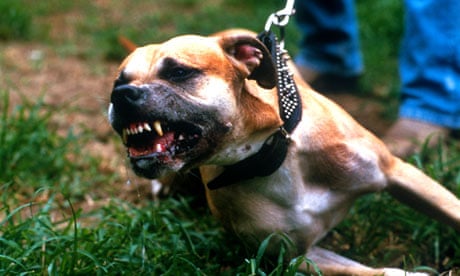The government is studying plans to slash compensation for people injured by criminals, including the children of murder victims, despite mounting opposition from within its own ranks.
Ministers want to cut a quarter of the £200m awarded annually by the Criminal Injuries Compensation Scheme in a move that several Tory MPs, including John Redwood, lawyers and trade unions have strongly criticised.
The government claims the current scheme is too bureaucratic and means many people end up waiting years for compensation. There have also been claims that the scheme has been exploited by undeserving claimants.
According to the government's impact assessment, almost half of victims currently eligible for compensation – including people attacked by dogs – would receive nothing if the reforms go through. In addition, payments would be cut by up to 60% for the third of victims who suffer severe injuries. The Communication Workers Union, which represents postal workers, said each year 1,000 of its members receive between £500 and £1,000 from the scheme after being attacked by dogs belonging to irresponsible owners.
"The scheme is a last resort, but it's better than nothing," said Dave Joyce, the union's national health and safety officer. "But if these proposals go through, then our people will end up with nothing."
Usdaw, the shopworkers' union, said the reforms would cut payments to seriously injured victims by capping compensation for loss of earnings at £4,500 a year. Usdaw's general secretary, John Hannett, cited the case of a shopworker who was attacked by a shoplifter and was left with blurred vision, stress and anxiety, forcing her to take weeks off work.
"Usdaw won that woman £2,000 from the Criminal Injuries Compensation Scheme. Under the new plan she would get nothing," Hannett said. "Is that the sort of justice the coalition believes in?"
Under the current proposals, employees would only receive statutory sick pay of £85.85 a week while unable to work.
The scheme also reduces compensation for potential loss of earnings. Mark Miller, 27, was left with a brain injury following a random attack in Swansea in 2008. The scheme awarded him £246,000, of which £190,000 was for loss of potential earnings because he could not complete his degree and now has a limited capacity to work. Under the new proposals, his solicitor said he would be awarded around £80,000 for loss of earnings – a cut of nearly 70%.
New conditions would also be applied to awards to the dependent spouses or children of murder and manslaughter victims, who would no longer be entitled to claim a significant proportion of their deceased parent's or spouse's salary.
When the proposed reforms went before a special parliamentary committee last month they were opposed by MPs from all parties. It was the first time the delegated legislation committee had forced a government retreat in 50 years.
Tory MP John Redwood said: "I have never been shy about saying that I would like us as a government to spend less overall, but I never once thought it had to be done by cutting something so sensitive or giving a worse deal to the disabled, the poor or the most vulnerable."
However, justice secretary Chris Grayling said there was no case "for targeting resources at minor injuries that do not have a significant effect on the lives of those affected" and promised to "concentrate resources on people who suffer life-changing circumstances".
The government has until 22 October to confirm its intentions.
A spokeswoman for the Ministry of Justice said: "Ministers have listened carefully to the concerns raised in parliament and are considering their next steps in light of this. No decision has been taken."
Neil Sugarman, of the Association of Personal Injury Lawyers, said: "We remain deeply concerned that the government will still try to find a way to bring it back in 'under the radar'. In its present form, it would undoubtedly hit children, vulnerable and disabled people the hardest."

Comments (…)
Sign in or create your Guardian account to join the discussion